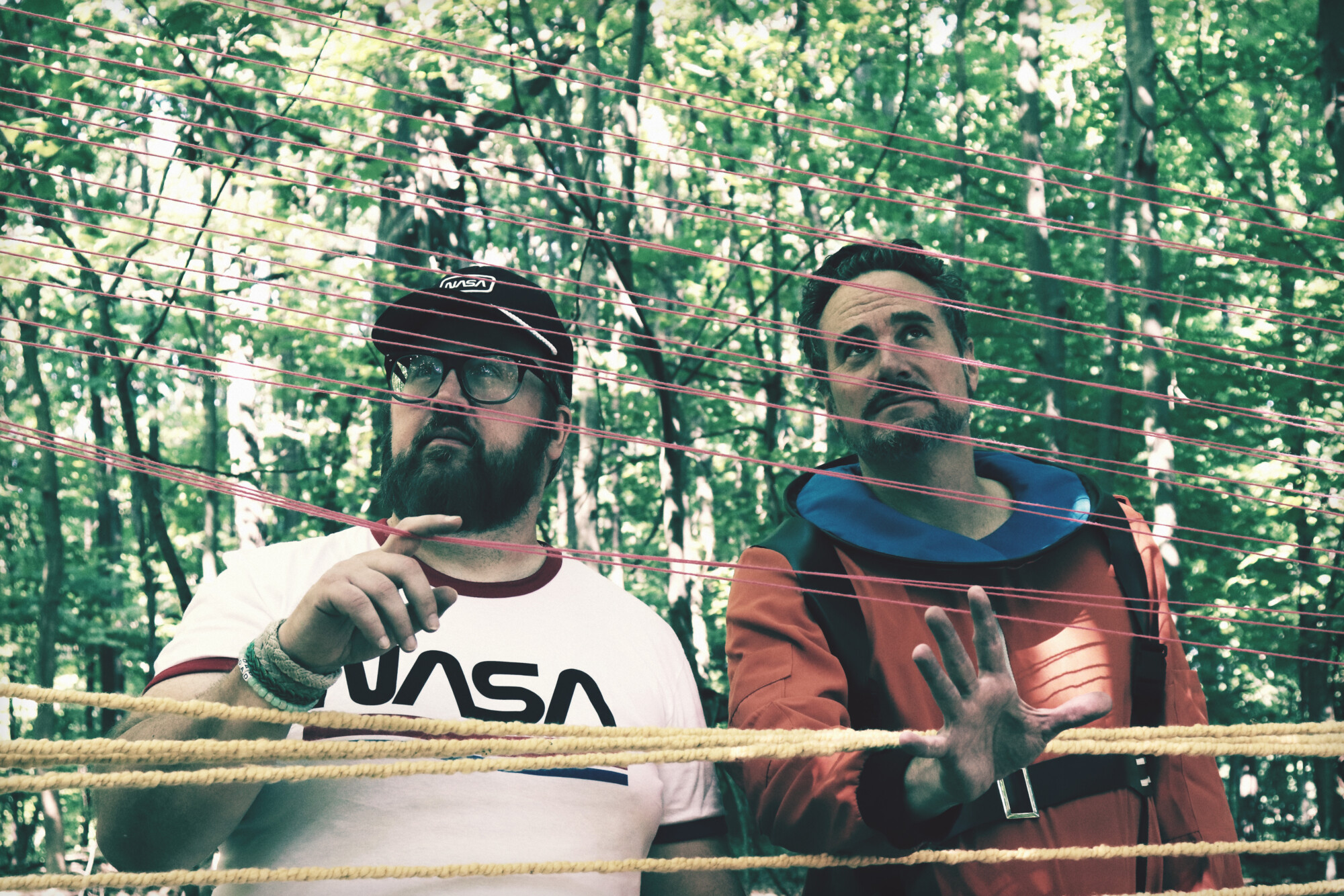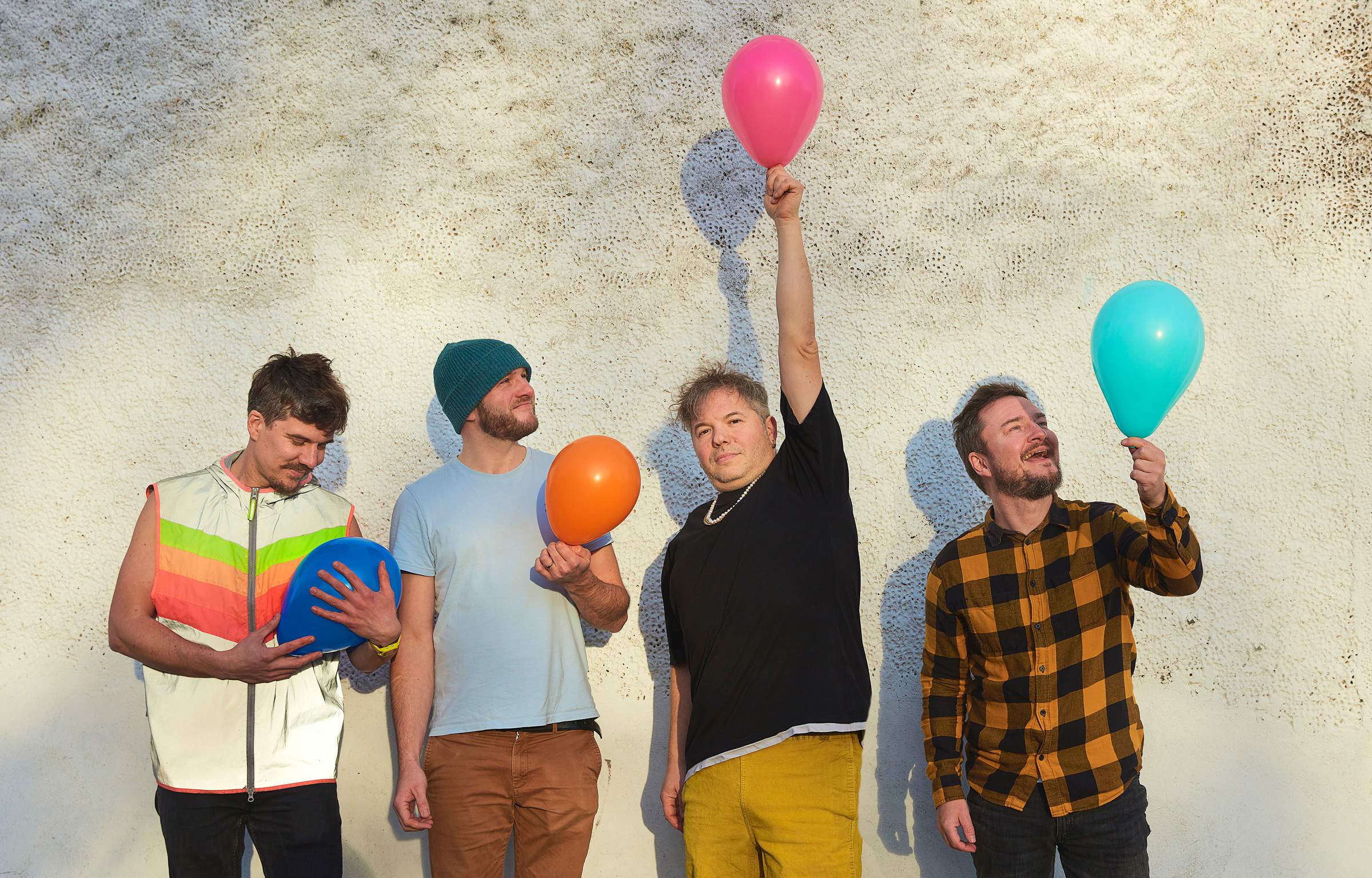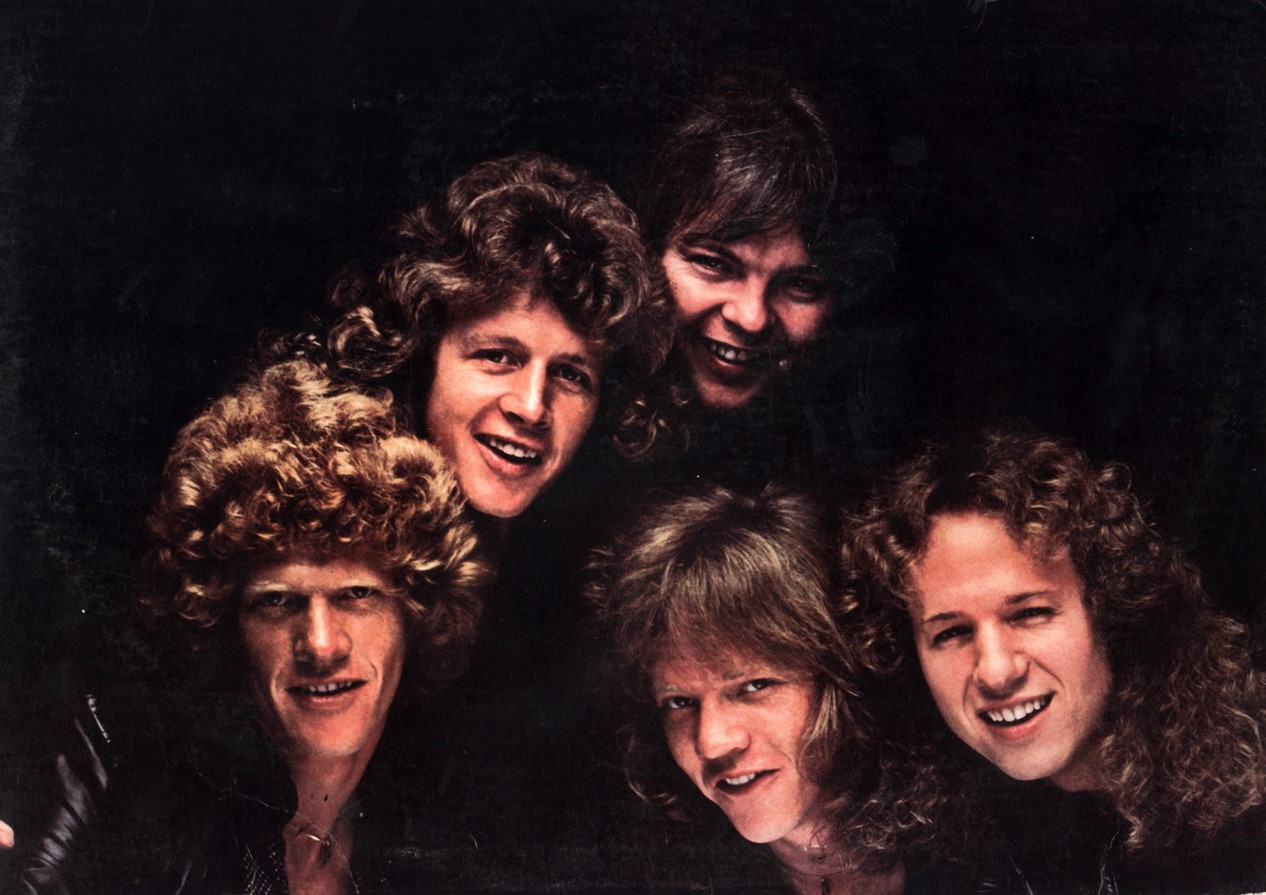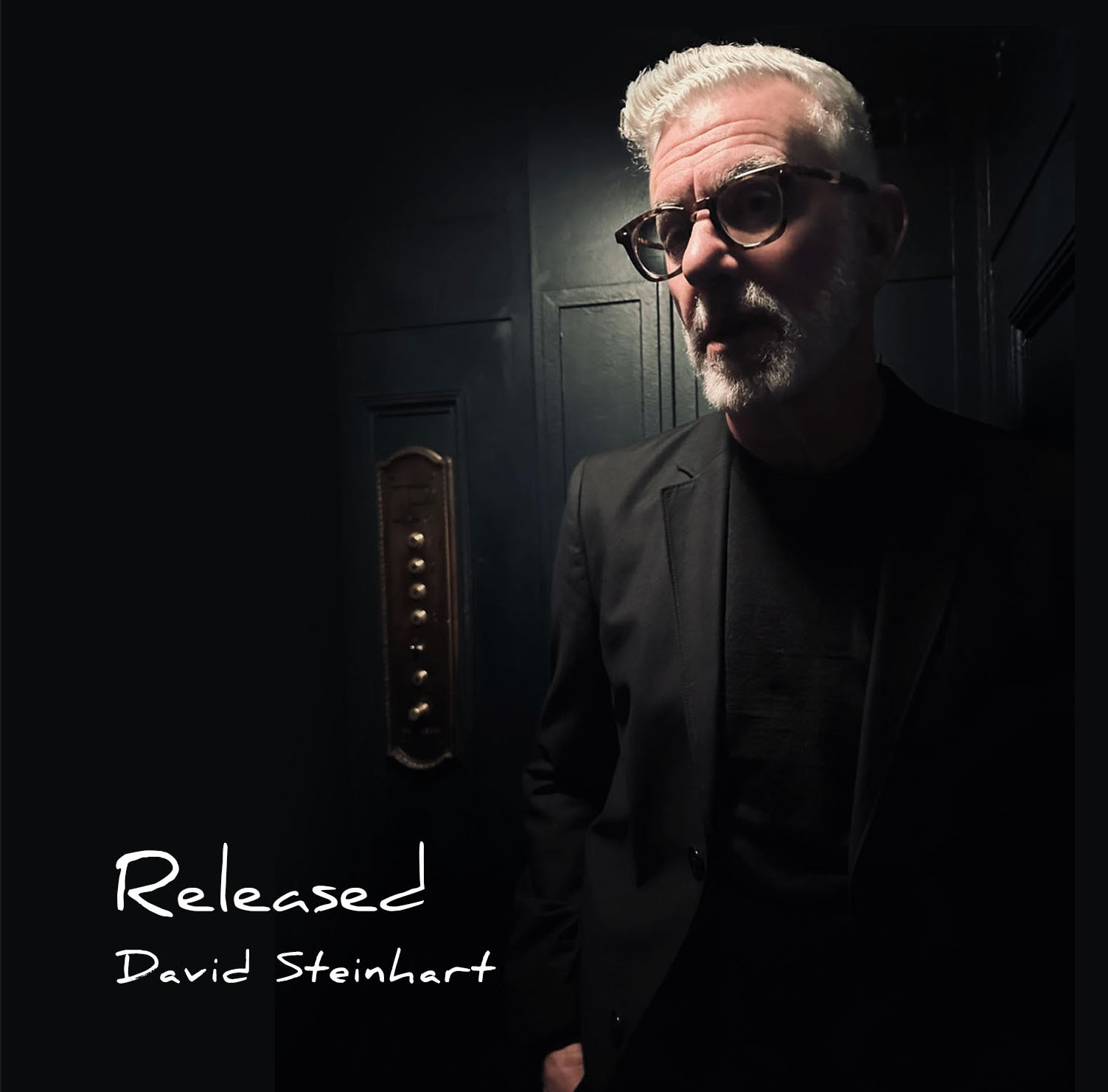Future Children | Interview | New Album, ‘Music From and Inspired by the Film Series “It All Falls Apart” Vol. 1’
Future Children is a duo consisting of CC Sheehan [Chris Sheehan] and Kevin Coral that recently released a fantastic album, ‘Music From and Inspired by the Film Series “It All Falls Apart” Vol. 1,’ out via N.O.I.A. Records.
Chris Sheehan and Kevin Coral first met back in the late 90s at Waterloo Sound recording studio (Guided By Voices, Kramies) and Sheehan joined Coral’s critically-acclaimed band, The Witch Hazel Sound in 1998 for two albums. As Future Children, the duo have been spending the past several years recording some remixes (most notably one for the UK’s famous psych duo, Amorphous Androgynous), a track with the Belgian artist Benjamin Schoos, which appeared on his ‘Doubt In My Heart’ album and their first full-length, a “soundtrack” to the paranoid 60s classic book ‘The Crying of Lot 49’ on the Scottish tape label, Bibliotapes. The duo is back with a new album, ‘Music From and Inspired by the Film Series “It All Falls Apart” Vol. 1’ and along with the interview we are premiering a video off one of the tracks from it, ‘Angels All Turned Grey’.
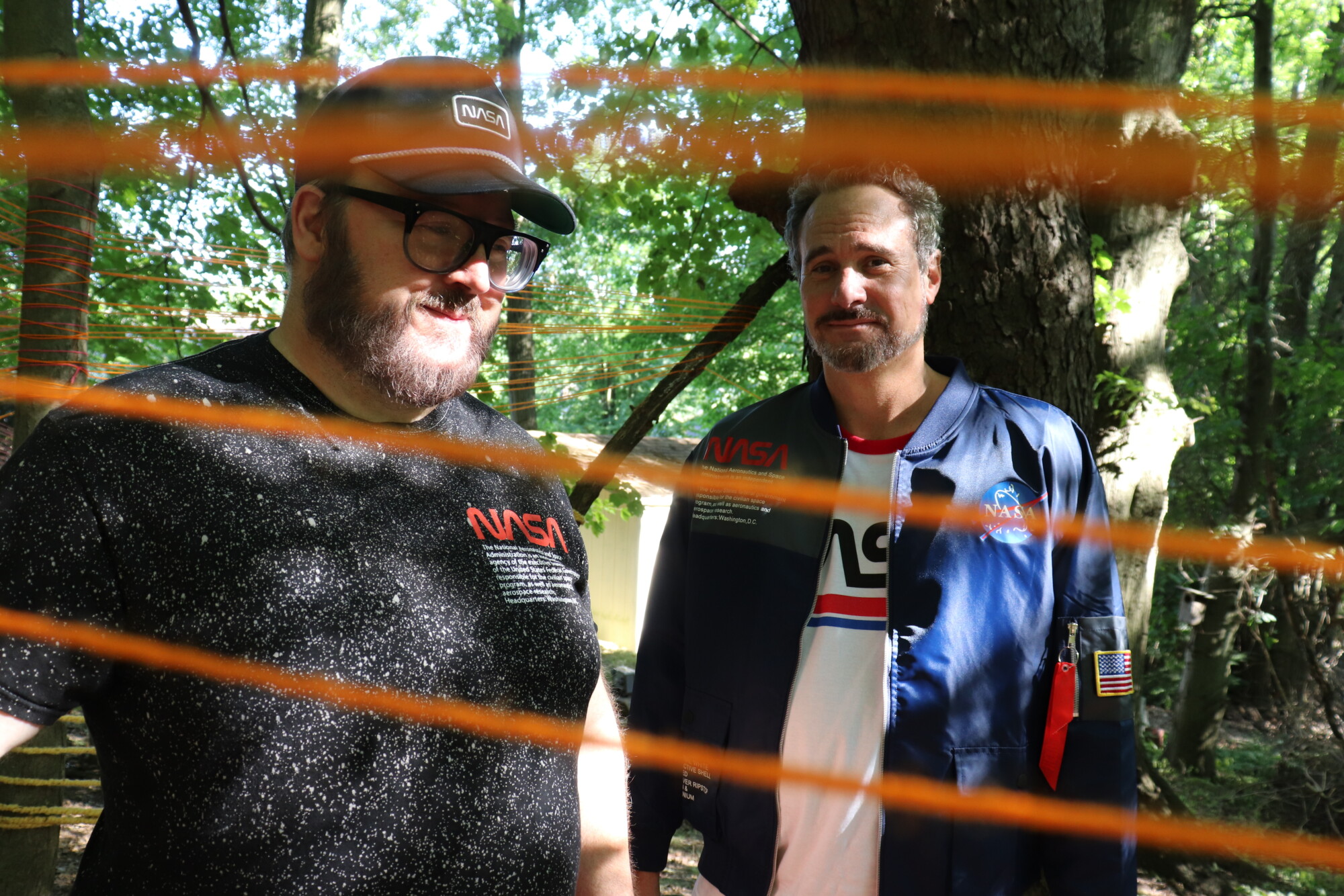
Future Children’s ‘It All Falls Apart’ is a concept presented in image and song that sets to explore the human desire to understand the “hard” problem of consciousness and existence, or even to deny them; the desire to transcend perceived temporal and spatial constraints along with the ceding of or demanding, control, both in individuals and groups (society).
“Loose concepts based around weird parts of cultural history”
How did you originally meet CC Sheehan [Chris Sheehan]?
Kevin Coral: We met at the studio that I ran with Scott Bennett.
Chris Sheehan: Right.
Kevin Coral: And you came because you’d seen the ad. We placed in a Columbus music paper called Moo and it talked about the studio being in a house like Motown and Joe Meek’s place…
Chris Sheehan: But which was rare at that point and unique because there wasn’t really a foundational internet to learn about things like that to glorify or fetishize any of that kind of thing.
Kevin Coral: I was fetishizing them early! Haha.
Chris Sheehan: Well, you were into history and sought out all of that kind of stuff before it became a well worn path.
What would you say is the overall vision of Future Children?
Chris Sheehan: Man, that’s a great question. It’s just loose concepts based around weird parts of cultural history.
Kevin Coral: And questions of consciousness and human folly, I think a lot of human folly.
Chris Sheehan: Yeah, I think so. Like human folly and things that intrigued us. Things that I like. We’re interested in those weird things, haha.
Kevin Coral: There’s a sort of strange trajectory. And things that ended up being cultish, for lack of a better term, but also like (outer) space things and how those things intersect frequently…how so often science and quackery intersect. Magic and science interact. I don’t believe in magic, of course…
Chris Sheehan: But you know, all these timelines, I think like the whole Ishmael Reed thing in his books, how there is no linear time. There’s telescoping and intersectional time. These are the concepts that we’re interested in architecting in the music I suppose.
Tell us about working on Amorphous Androgynous…
Kevin Coral: I mean, that came about because Gaz Cobain had heard some of the stuff we put up on Instagram. And then contacted us and said, “Hey, we’re doing a remix album. You want to do something?”
Chris Sheehan: His direction was very specific to a degree.
Kevin Coral: Yeah, it has a very Pink Floyd-vibe and it had cool vocals by Peter Hammill from Van der Graaf Generator.
Chris Sheehan: And then Paul Weller.
Kevin Coral: Oh, yeah. PAUL!
Chris Sheehan: Paul Weller on piano, which at one point when we were recording, you’re like, “Okay, your piano and Paul’s sound very good together.” And it was just weird. Like, oh, that’s Paul Weller from that one band. And I said, Paul, like I knew, you know, Paul, like Paul McCartney, like he lived here… All right.”
What was the concept behind ‘Interpret Composition #7, 1960 For Synthesizer, Sampler And Tape’?
Kevin Coral: Okay, so that was an actual composition by La Monte Young from 1960. He had a whole series of compositions from the 1960s.
Chris Sheehan: Right, that he had published. It was two notes.
Kevin Coral: As I recall, it was B flat and F.
Chris Sheehan: Because it wasn’t dynamic, though. At all. It was one chord. One chord. Yeah, but the cool thing was, we did an analog side…
Kevin Coral: And then we did a digital side/version with a DX7 and the digital sampler (Emu Emax)
Chris Sheehan: And I still have a video of that tape. The tape reel is running. From the Jason Tarulli studio. Kevin was partners in a studio in Akron, Ohio with The Black Keys live sound engineer Jason Tarulli. It was the former studio of Patrick Carney, drummer of The Black Keys.
In 2021 you released ‘The Crying Of Lot 49’ and are currently promoting ‘Music From and Inspired by the Film Series “It All Falls Apart” Vol. 1’. I would love it if you could discuss both of the releases as in-depth as possible.
Kevin Coral: The Crying Of Lot 49, people seem to still like it a lot.
Chris Sheehan: It’s accessible. It’s probably anyone’s first best jump into Thomas Pynchon.
Kevin Coral: Oh, yeah. Oh, I agree.
Chris Sheehan: The Crying Of Lot 49 is kind of at a pivot of the 60s, it’s before Pynchon really (had) gotten into a really deep, sort of like, really multi-multi-tendril story.
Kevin Coral: Honestly, if you think about it, I would argue it’s actually a perfect touchstone for what we were just talking about with our vision with Future Children. That kind of, like everything California, like so much everything we’re talking about, too. It’s California based, even stuff I wasn’t even thinking about before. But so you’ve got California craziness, all those sorts of things in a weird way. It’s almost exactly what we’re talking about. And I would argue, even though most people would probably not “hear” it, some comedy is there even though I’m completely po-faced whenever asked about our music! lol.
Chris Sheehan: Well, it’s funny, because The Crying Of Lot 49, Vineland and Inherent Vice all take place in California. And all of them sort of have this gloom over them; Inherent Vice actually has a passage where the cast members from Dark Shadows show up!
Kevin Coral: Yes. Pieces of that.
Chris Sheehan: So it’s also an end of American expansionism, but it’s also you know, American dream come-to-die, gloom. Yes. I think we have some of that too, I guess in the music. I don’t know.
Kevin Coral: I can also think there’s some humor, but I don’t think anyone would see it.
Chris Sheehan: Right. But yeah, we laugh a lot at stupid things and are basically absurdist about life….
Kevin Coral: And the new cassette/album is just it’s basically a series – well, no. Not a series. It’s songs from the series of things that we’re interested in, some of which actually have been filmed, which I feel like we actually have to remind people that there actually is …
Chris Sheehan: There’ll be a film yeah, a hundred years after we die. Haha. I hope they spell my name right.
Kevin Coral: So yeah, this it’s all again, it touches each one of those things. It’s almost like a mixtape, if you will, of the various things we’re interested in. And the stories we’re actually commenting on in some of the films. So yeah, there’s the Jack Parsons stuff…
Chris Sheehan: Lyman…
Kevin Coral: Oh, yeah. Mel Lyman, good one.
Chris Sheehan: John C. Lilly…
Kevin Coral: Bobby Beausoleil, the whole Manson thing. But again, coming from the Beausoleil angle, because he’s also, you know, in the San Francisco music scene, he also is with Kenneth…crosses over with Kenneth Anger, which is, again, which crosses over with a lot of this stuff, California, Hollywood Babylon, all that kind of, like, all of this stuff is interconnected, it wouldn’t even be hard to draw a line from Thomas Pynchon to any of the things were talking about now. Parsons, just using California, it’s like this is all interrelated, everything, even Madame X who is from France, the whole concept of, like, I would argue, she’s the first 20th century person that she thinks of herself as a complete individual, to the point of where she’s like, I don’t even exist, but within I don’t have a corporeal form and that, like that, to me is the start of I mean, that’s, it’s, it’s basically post Marxist like individualism that’s gonna come in capital in America, right? I mean, even though it’s again, psychological and bizarre and blah, blah, blah. And then the last thing (‘It All Falls Apart’) if it is just a fable thing, which is just sort of like well, what we imagined was…Okay, say Madam X, was this spirit or this being that flew off into space? Okay, so now let’s take a fable of this technological thing like this Android “Lost in Space” after you know God knows what happens on Earth and then that she gets that spirit of her of Madame X in somehow…finds a home in this Android and this becomes human. And what does it mean to be human and all this stuff started? A bow if you will, wrapping it up.
Chris Sheehan: Yeah, and it’s like that, but also the technology and human progress have to die to gain a soul.
Kevin Coral: That’s a good point. Yeah, I forgot about that, that how we make, we make these things of like, as technology. But as it ages and becomes obsolete it gets the cache of “soul” as you said, as it ceases to be useful as technology anymore. And also it’s sort of like it’s a conceit of this well, what if it really what if machinery as it was beyond a point to be useful? Literally got a soul so it’s kind of a conceit. It’s just a conceit. Right? I would love you to speak about growing up and how you first kind of music?
Chris Sheehan: Did you take piano lessons?
Kevin Coral: I did do that.
Chris Sheehan: Okay, so common spot, because so did I…
Kevin Coral: But unlike you I forgot everything.
I would love it if you could speak about growing up and how you first got interested in music?
Chris Sheehan: My parents had The Byrds and The Beatles records. I heard that stuff and I liked it. It was great. It was influential. Yeah. And then maybe I’m six or seven? Maybe? I don’t know. It’s hard to remember when I started taking piano lessons. Yeah, it just became like this whole other mapping of your brain. And not to be weird about it. But like, they say this, it’s like, you know, you have your homework or you do your things during the day. But if you came home and had one hour and where you had to do these things, where you’re coordinating your brain and your ear and your hands like that, that maps your brain differently. And I think that I don’t know, again, how we all become unique. Or if we’re all unique at all. That felt like the first point where I sort of was like, like diverging from some normalcy. Again, this is a long time ago. And the human brain colors a lot of it…
Kevin Coral: I only had lessons for like two years. And then we moved. So I essentially forgot everything. Because I was like six at the time or whatever, like you said, and so weirdly, actually… I know you were in sports, too. I basically got into sports. My brother became a piano player. And I was like, I became much more into sports, too.
Chris Sheehan: But then it was weird because we didn’t have cable tv. So like, I remember late at night, I grew up in Columbus, and it was like, we had these stupid rabbit ears. But I was able to fine tune it when there was enough accommodation in the atmosphere where you could get the Much Music channel from Toronto, Canada.. And of course, we didn’t have MTV. So I was like watching this sort of pseudo MTV. Yeah… But it was weird. I saw My Bloody Valentine on Much Music one time. So that was pretty important. I’m sure Pynchon could have written something about an underground TV music channel which could only be accessed with antennas made from pure Selenium.
Kevin Coral: Yeah, I mean, again, I feel the same way. And I feel like I think we were both in the sports and then I think probably the same for you like when you went to college? Like that’s kind of when like, well, the REM, The Smiths, The Jesus and Mary Chain all that, because you started to meet people at college into that kind of music.
Chris Sheehan: Yeah…
Kevin Coral: I mean, I was like you in the sense when I would see something interesting on MTV, if I was at someone else’s house who had MTV or I saw or heard like, I remember hearing like ‘Fall on Me’ by REM on the radio like once! Haha.
Chris Sheehan: That’s a good point, because Columbus music was all classic rock about the point when I was 17. So it was like 1990 where there was a radio station that started playing what was then called alternative music, whatever that was or is. And for the first two weeks, they had no DJs. literally just sequenced, just all kinds of stuff they wanted to play. And it was like “this is weird!” And it’s weird because I remember on family vacations, I would have this radio and I would be like dialling into the low frequencies and finding these college stations.. And finally, I was hearing that kind of thing in Columbus, which was kind of like a weird moment
Kevin Coral: You know, that triggered a memory of me of my brother and I. We would spend almost all summer…we had a pup tent. And we would set up and we would literally stay out there all summer. Literally. Yeah. And the night-time too. And, and we had in the tent this shitty old AM radio, and we always had it running and I was fascinated by the things we could get at night. Even like weird stuff like Art Bell, but you would listen, with half an ear, you know, kind of thing. But it also really I also realized, like, I just I always was fascinated by radio and that kind of weird world out there.
Chris Sheehan: Yeah, it’s magical, there is randomness that suggests things and you fill in the blanks, right? And it’s also private…
Kevin Coral: Like, you feel like you’re in this invisible, you know, group web with other people totally before there’s a web, right?
Chris Sheehan: No, I agree. 100% that was mysterious and interesting.
Kevin Coral: And I feel weirdly, that that still informs like a lot of my love of like, synths and things.
Chris Sheehan: I think a lot of the way we recorded ‘The Crying of Lot 49’ has that sort of weird thing where it sounds like music coming in and out of an AM radio broadcast, in between the channels so to speak.
Tell us about your first bands and how that evolved into Witch Hazel Sound?
Kevin Coral: To be honest with you, I didn’t really have many first bands. I had a kind of neo-kind of goth band called Second Skin because I liked goth/post-punk because it was basically easy to play!
Chris Sheehan: Yeah.
Kevin Coral: And you could use drum machines and no one gave a shit. So I mean, seriously, these are the sad truths! lol! But it also… that was when shoegaze in Britain was just really starting. Like, I remember getting the first EP of Lush and going “I want to sound like this.” And then My bloody Valentine. And so then I met Mark (vocalist for Witch Hazel Sound) and the first drummer Brian cuz I put up a flyer in a record store for like, looking for musicians into that kind of thing. So by that point, my second real band was already Witch Hazel Sound. So I didn’t like multiple bands. Up until then…
Chris Sheehan: So, when you went into your first band, so there was no precedent for anything that you’d done before you just played?
Kevin Coral: Yes.
Chris Sheehan: Interesting
Kevin Coral: Yeah. Well, that’s a very post-punk sort of thing.
Chris Sheehan: I agree. It was much more like the concepts were built; the concepts were there. then it was like, all hands on deck.
Kevin Coral: I was a Lou Reed-kind-of-guitar player. The Velvet Underground. Like I knew, like four chords!
Chris Sheehan: Yeah.
Kevin Coral: Like, honestly. But I also liked playing guitar and writing songs. Not to play cool riffs or solo.
Chris Sheehan: The first band I was in, we absolutely had a guitar player who had been studying guitar. So that shaped it in different ways…
Kevin Coral: So when your band (Ghostwriter) came up, and that’s when he first met, to record. So like how many bands had you been in? Was that down the line?
Chris Sheehan: Two really – well, it was the same guys in both bands basically.
Kevin Coral: Oh, it was multiple permutations of the same group of guys.
Chris Sheehan: I played piano, and through high school, I was in no band, right. I didn’t touch a guitar til I was 19.
Kevin Coral: I didn’t touch one til I was 21.
Chris Sheehan: And it was more to me, ultimately, after getting into the thing, whatever it is, it was more of an instrument just to create songs. I didn’t care about any proficiency, which was at odds with all the guitar magazines et cetera.
Kevin Coral: And you could do it wherever, like in the dorm room or in the down in the dorm lounge like, that was also part of it for me, too, was like, because I would frequently instead of going to class, I would sit down in the lounge in the dorm it had the TV on and I’d play the whole night. Just sitting there…So yeah, that’s similar. Okay. So it’s basically the same group of guys. And then you sort of kind of like, oh, this is the thing we should call, we should name it.
Chris Sheehan: Right. And it’s sort of like an REM reference point really. But I mean, there were other influences. It just ultimately didn’t get formed strongly enough, and I just got interested in more orchestral things.
Kevin Coral: And the Witch Hazel Sound sound how you did end up joining us?
Chris Sheehan: So that would have been right after the second record (‘It’s All True’)…it would have been during the recording of ‘It’s All True’.
Kevin Coral: That’s right Christian (drummer) played on some of the tracks. That’s right. Okay. So you came in right around 1998. And then, you were with us (Witch Hazel Sound) until we recorded the last one (‘This World, Then The Fireworks…’).
Chris Sheehan: Which I played on.
Kevin Coral: Yeah I remember you playing some guitar part on something on ‘It’s All True’.
Chris Sheehan: I just remember one of the funniest things was, because this was around the time where you were showing me a lot of film things. And I remember there was jeez, it might have been A Fistful of Dollars or one of them. And I just remember hearing one of the instrumental passages and it being remarkably similar to something on ‘It’s All True’ and I looked over at you and you’re like, you’re hiding your face. You’re like, yeah, and, but it wasn’t identical. That was just something that reminded me like, well, this is where I got the idea!
What’s next for you?
Kevin Coral: I mean, certain death, certain death.
Chris Sheehan: Yes… I think what’s next is we’re just going to keep putting out stuff, as much as humanly possible because we have a lot of material and life is growing short, you know…
Let’s end this interview with some of your favourite albums. Have you found something new lately you would like to recommend to our readers?
Kevin Coral: Well, no, but I will say one of my favorite albums – two specific kinds of albums that I will listen to all the time and they never, never cease to give me pleasure – is basically Big Star and Love ‘Forever Changes’. Because it’s like, I’m as interested in rock music of the last 50 years. Just a lot of vulnerability in those records. And then of course, The Beach Boys anything. Like I’m obsessed, like with like, the Spring record, which is Brian, Marilyn and then her sister. I mean, I just love it and there’s like synths on it! I’m like, there’s everything on this! Haha. And so I end up going on some Beach Boys dive almost…like I would say bi-monthly or semi-monthly like a friend and I were saying the other day. We’re like, how great is ‘Sunflower?!’
Chris Sheehan:: Listen to ‘Disney Girls!’ Certainly there’s a naivete to it. That is probably out-of-step today. That’s still good.
Kevin Coral: I know. Yeah. Well, we talked about ‘Sunflower’. It’s so good. “All I want to do,” like “Add some music to your day.” That and obviously The Beatles and stuff. McCartney, and like, I can listen to ‘RAM’ almost any time.
Chris Sheehan: McCartney is almost perennially underrated. In almost every capacity. I mean, ‘Scott 4’ by Scott Walker to me where it almost rolls into some almost pastiche-type thing; there’s so much in it especially if you read the history about that record where he’s just like, teetering on the edge and he’s gonna make this record.
Kevin Coral: But he does what would be considered a terrible Covers Record right afterwards?
Chris Sheehan: Awful. because he gave up I mean, gave up by his standards. I would have been happy to give up. I would have given up. Whatever you want. lol I mean, obviously, I love all the Bowie Berlin era records.
Kevin Coral: Yep.
Chris Sheehan: But it kind of also just kind of centers around all that, like we’ve talked about Big Star, The Beach Boys. Yeah. You know, Bowie,
Kevin Coral: And then really, like all…the other thing that I would say is especially with what I listen to nowadays is basically any number of Italian soundtrack people from obvious ones like Morricone and Cipriani. And, but I mean, but even because there’s so many, like, there’s so many labels that put them out now. Yeah, like I was listening to one the other day, like it was, it was psychedelic, it was insane. And they ran like everything through Leslie, like everything. And you’re just like, “This is amazing.!” So there’s always that kind of library music too.
Chris Sheehan: I think we both are alike, whether it’s English or Italian or any of the European. Not so American, to be honest. You know, it’s more of a European thing.
Kevin Coral: I think that’s the other point too, is like future children, if anything, I would argue, has more of a European vibe, then maybe those descriptions of the stuff we love would indicate: The Beach Boys, Big Star et cetera.
Chris Sheehan: I would agree. And any sort of acceptance or critical valuation has come from Europe.
Kevin Coral: Yeah, fair. I agree. Is there anything we’d like to mention that we’ve heard lately that we would recommend?
Chris Sheehan: I mean, Frank Ocean, but yeah, we like Frank Ocean when I say recently that’s recent but that’s what 10 years on now?
Kevin Coral: I mean, I like unfortunately, I tend to like a lot of shit That’s been reissued. Yeah. Or stuff that’s old that I haven’t heard.
Chris Sheehan: I would love to love something new! Right?
Kevin Coral: I like again, I like a lot of the sort of…I like we like Broadcast and that kind of like English Radiophonic stuff or Stereolab. Like that’s not exactly new. But I don’t know. I don’t think…Frank Ocean may be as modern as we get. I mean, Madlib. I like a lot of what he does, The Heliocentrics too for sure….
Chris Sheehan: Yeah, yeah, we’re probably not the people you should be asking the question.
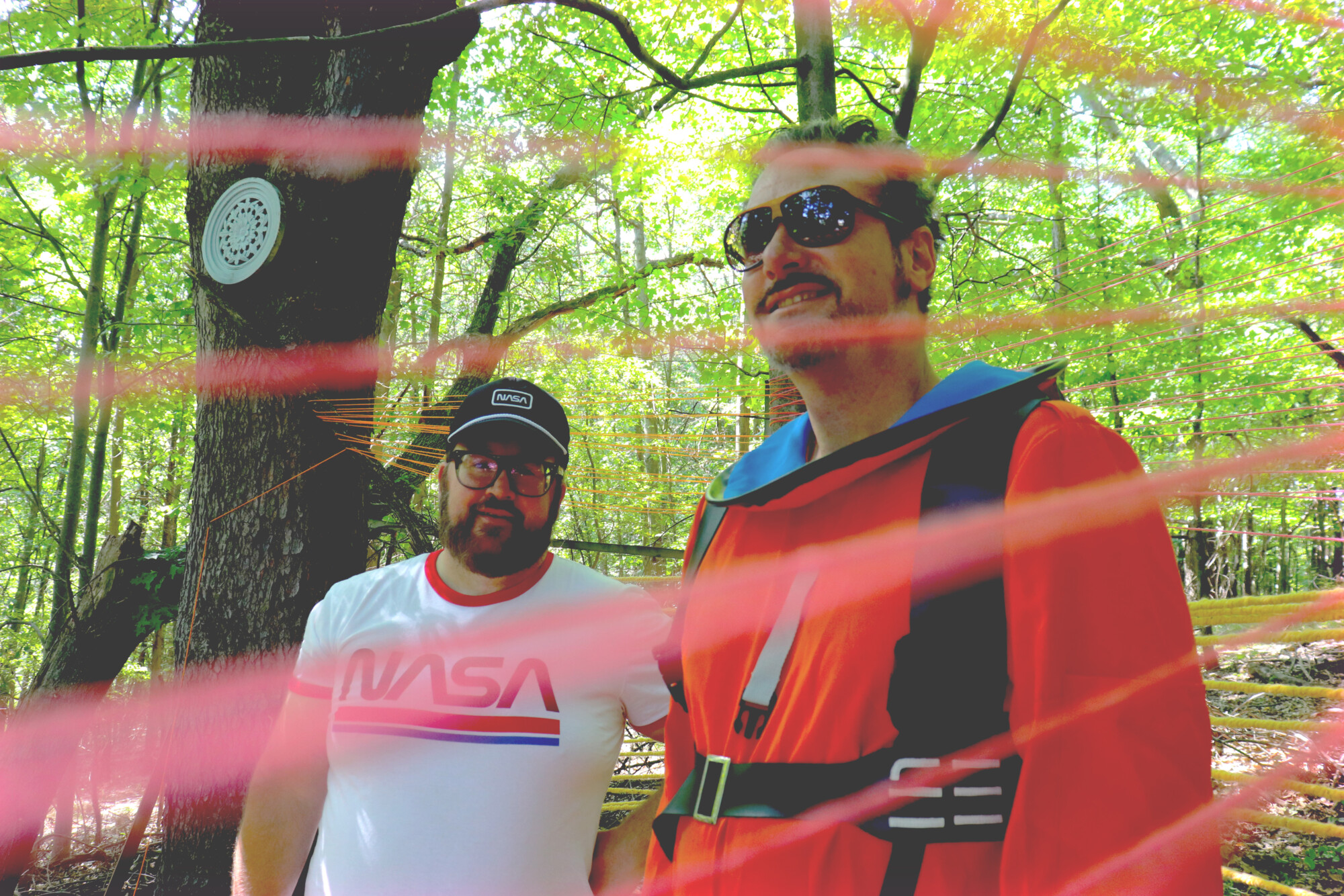
Thank you for taking your time. Last word is yours.
Kevin Coral: We appreciate anyone who listens to our stuff. We love creating this weird music…
Klemen Breznikar
Future Children Facebook / Instagram / YouTube
N.O.I.A. Records Official Website / Facebook / Instagram / Twitter / Bandcamp / YouTube

